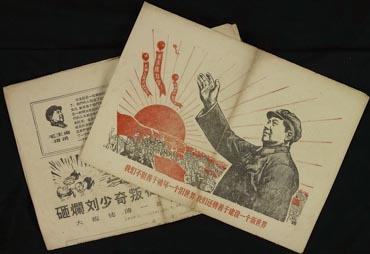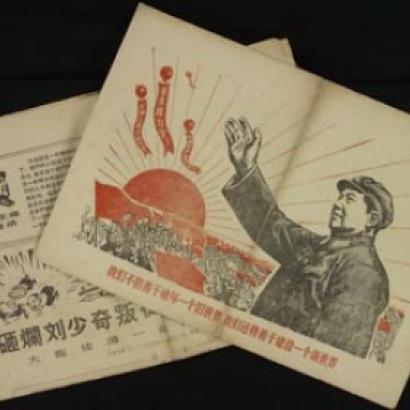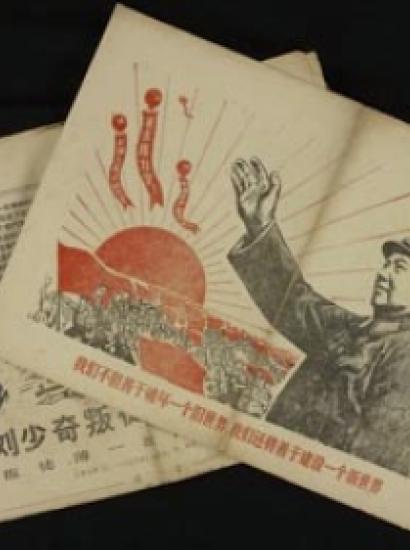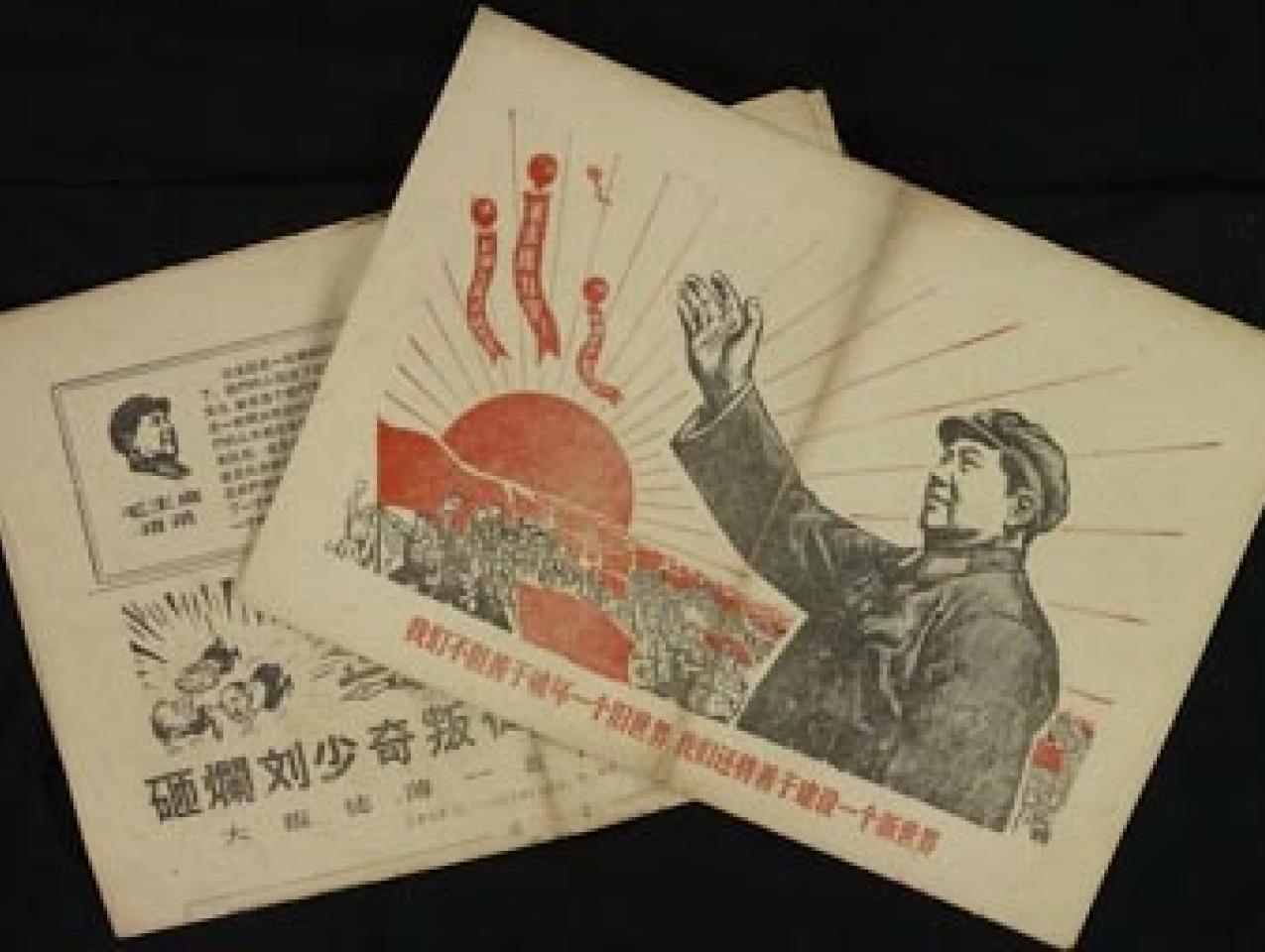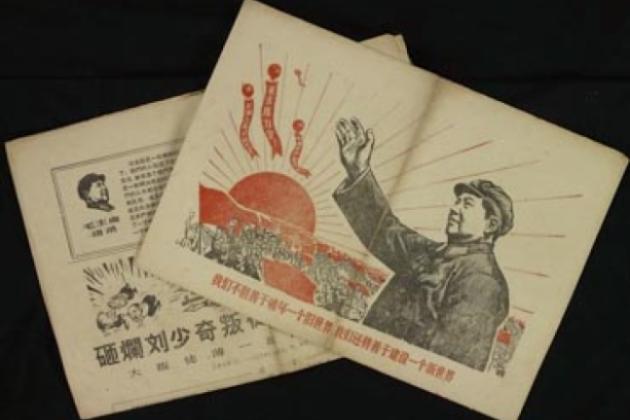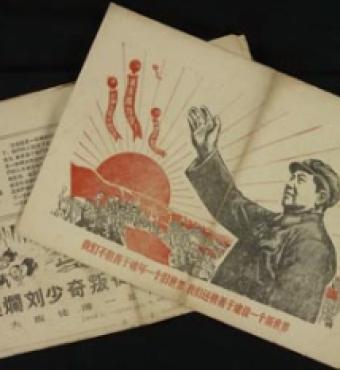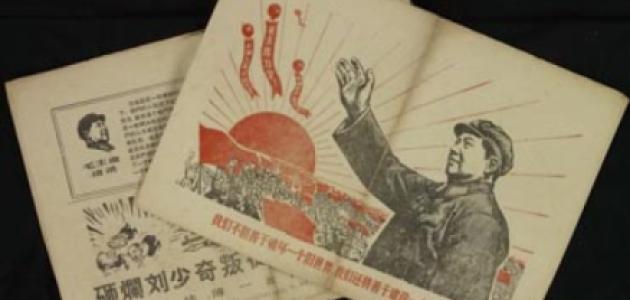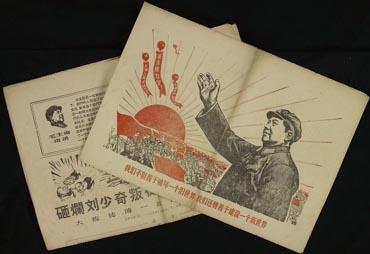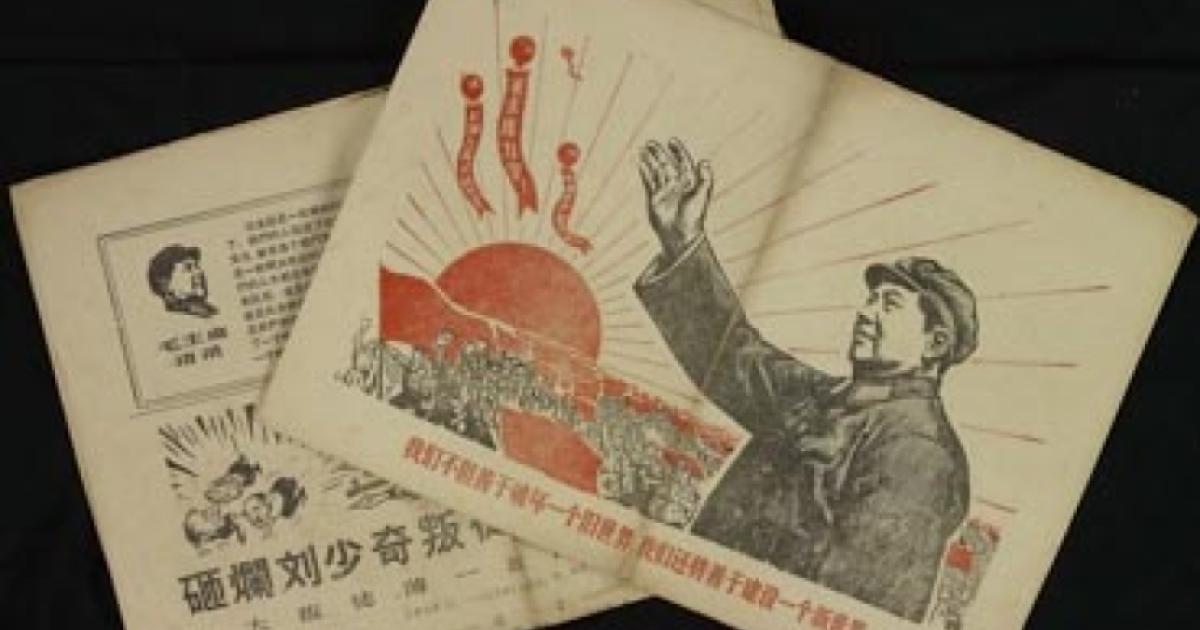

The Hoover Institution Library and Archives have recently acquired more than two hundred pieces of historical materials relating to the Chinese Cultural Revolution, a sociopolitical movement that took place in the People's Republic of China from 1966 through 1976. Set into motion by Mao Zedong, then chairman of the Chinese Communist Party, its goal was to enforce socialism by removing capitalist, traditional, and cultural elements from Chinese society and to impose Maoist orthodoxy within the party. The most important, although unstated, reason for the revolution was to return Mao Zedong to a position of political power (he had lost much of his political influence as a result of the failed Great Leap Forward Movement). Using his name and remaining credibility, Mao implemented the controlled anarchy of the Cultural Revolution to remove his party opponents, most notably Liu Shaoqi, then president of the People’s Republic. The movement, however, also brought chaos, as social norms evaporated and the established political institutions disintegrated at all levels of government. Estimates are that some thirty million people were persecuted in the violent factional struggles that erupted across the country, and that still more suffered a wide range of abuses, including torture, rape, imprisonment, sustained harassment, and loss of property.
This increment, which augments an earlier collection of Hoover’s Chinese Communist Party records contains nearly two hundred issues of the Red Guard “little newspapers” between 1967 and 1971 and other communist pamphlets, internal party documents, booklets, serial issues, and published speeches of communist leaders during this period.




